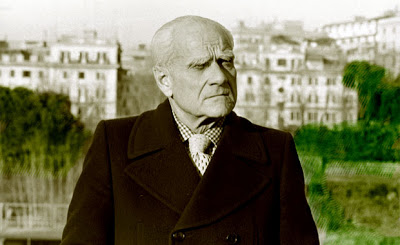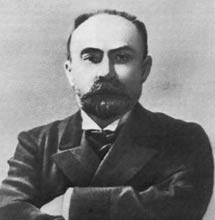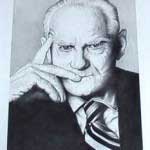
By Gaither Stewart
No more than you can choose the age in which you live, can you live without the age in which you are born; we are all children of our times … and to some degree consonant. The laws of the age of science and technology demand agreement if not homogeneity as a condition of existence: to work and exist means to collaborate within a system in which the actions of each are prescribed. Action is homogeneous when it conforms to the requirements of the system.
Nonetheless, the goals of the apparatus are not those of the individual. Personal conscience is easily reduced to conscientiousness in the execution of one’s duties from which is born the concept of conformist conscience. The result is the hegemony of “behavioral psychology of adaptation”—to be increasingly less oneself and more like everyone else. Technological society works against individuality—and for homogeneity. (The above is an adaptation from readings in Lionel Trilling’s Sincerity and Authenticity.)
Being different is not only non-remunerative but also arouses suspicion. The paradox is that authenticity—being oneself or knowing oneself, which wise men have long prescribed—in the conformist society becomes pathological behavior, as if being oneself were a disease.
Authoritarian systems rely on compromised writers to portray false images; they fear the truthful portrayal of reality. The compromised writer follows the victors; conformity and opportunism go hand in hand. Inevitably the compromised writer sticks to the middle; he avoids saying what he feels for fear of his place in society. He is the conformist per se.
The compromised writer is aware that many people do not like being told the truth and he is willing to write what he is told people want to hear and to bend with the prevailing wind. He is a fearful writer.
Freud instructed that the things the writer is inhibited to write are usually the most important and the things that press him the most. Self-editing and self-censorship are not the same thing. Once the writer stops in mid-sentence and censors something he wants to say, something he knows he should say, for the sole reason that he might be breaking some social-political rule of correctness, he is on his way to compromise.
~
Compromise in journalism and literature leads straight to the banalities of writing—the terrible to-do about petty problems of ordinary existence or in its most degenerated form about the radiant futures of totalitarian societies. The headache of choosing a vacation destination or workers with shining eyes gazing toward the horizon of the future cannot be a substitute for themes like injustice and human suffering.
Commitment stands at the opposite pole from compromise. The modern concept of committed literature emerged from the conflict of 20th century ideologies that have reflected the deep social changes of our times—the domination of Nazism and Communism in Europe, the victory of world Capitalism over Communism, and today the clash between market ideology and the rich world on the one hand and on the other the growing rebellion of the impoverished four-fifths of our planet.
Today’s social situation obligates the writer to examine his position in the world and his responsibility to other men. It obligates the writer to approach his work in a committed way. To resist the temptation of compromise and conformity the writer must be devoted to autonomy. Although the honest writer must stand inside society—not in the shadows of the periphery—he must tell the truth.
I believe that commitment to truth is inherent in good writing. It is a moral absolute. To write is to reveal an aspect of the world in order to change it. In that respect writing is didactic.
Commitment and involvement are closely linked. However, though involvement is inevitable for the writer, his commitment does not come about automatically. Not all writers are even conscious of their involvement; but the committed writer is aware of the world around him and his writing is the result of his attitude toward it.
Thus, commitment involves the writer’s trying to summarize and then reflect through his work a picture of the human condition—which is also social—without however losing sight of the individual. Exponents of committed literature reject the fallacy that art is a thing apart; despite the obstacles politics raises, writing, I believe, is part and parcel of the social.
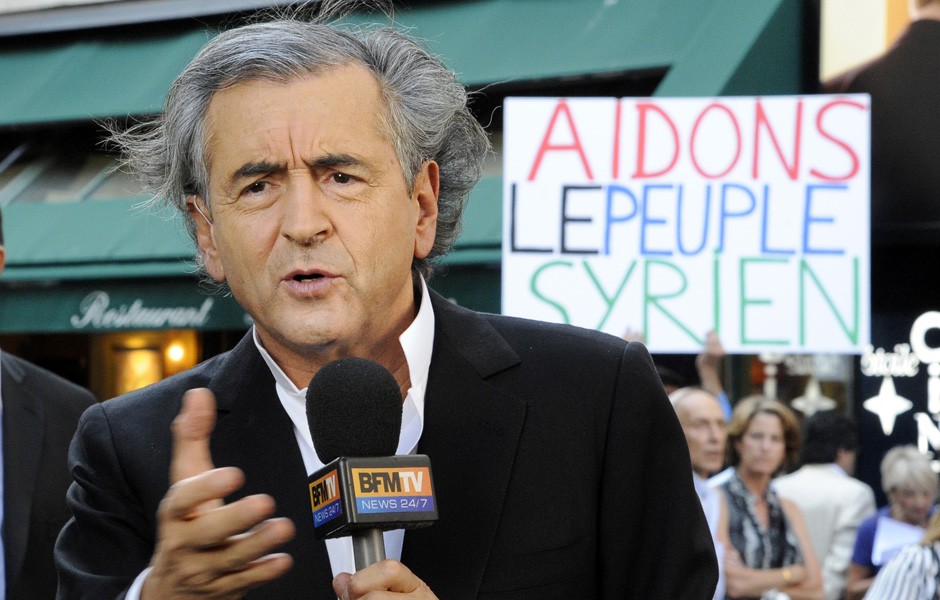
The shameless fraudulent “philosophe” Bernard-Henri Lévy—a proud Zionist—in a photo op designed to promote further aggression against the Syrian government. He has made a career out of imperialist shilling like this, and is naturally warmly received by all the top gatekeepers in the Western machinery of propaganda.
Writing is a social act insofar as it derives from the will to communicate with others and from its resolve to change things. The writer wants to remake the world.
In France, Bernard-Henri Lévy and other so-called nouveaux philosophes, made careers debunking intellectual commitment. After the fall of Communism in East Europe their message was that one could no longer take socialist ideas seriously. Lévy said: “When intellectuals let themselves believe in a community of men, they are never far away from barbarism.”
Reductive, to say the very least. No less than an apology for totalitarianism. Lévy and friends became opportunistic journalists and found easy targets among French committed writers: they said that Sartre had after all flirted with terrorists of the German Baader-Meinhof Gang and Régis Debray trained in guerrilla warfare in Bolivia with Che Guevara. Post-commitment intellectuals find themselves in the blind alley of having to try to justify social injustice. Conformists under the guise of free marketers tell us that rich countries have no responsibility for problems of the Third World—as if we do not all belong to the same world.
According to the Russian Communist theorist Georgy Plekhanov, “The belief in art for art’s sake arises when artists and people keenly interested in art are hopelessly out of harmony with their social environment.” It has been said that art for art’s sake is the attempt to instill ideal life in one who has no real life and is an admission that the human race has outgrown the artist.
Here fiction and journalism are linked. Instead of the “radiant future,” committed writing depicts the lives of other people, however ugly or illuminating. It contains both human truths and human potential. Since my daughter’s measles or a flat tire on the way to a Shopping Mall are boring and their presentation in fiction is mere recording, the literary author must instead total up and interpret human experience.
I personally want to see the heroic in a fictional hero, but I do not want lies. I want the hero to offer me counsel on how to live better. On the other hand, to describe poor people as happy simply because they finally have shoes is nonsensical. The portrayal of the masses as happy because a new political party is in power is deceit.
Similarly I find the depiction of globalization of economy and capital as the spread of democracy, security, and well being not only absurd but also immoral and evil. War is not peace. Disasters will always be disasters. And it is insane to call catastrophes victories for mankind.
The road of commitment is lined by the canonical names of literary history. At the time of the French Revolution, Wordsworth wrote his greatest poems like “The Ruined Cottage” and “The Old Cumberland Beggar”— which depict the sufferings of the English lower classes. Shelley—labeled by Harold Bloom the Leon Trotsky of his day—and Keats and Hazlitt, realized Wordsworth’s genius for teaching and instilling in others sympathy for all those in distress. For Wordsworth, counted genius, transcendence and his personal epiphanies. He was forever the stranger. An aura of otherworldliness marked his genius and rankled his contemporaries because he spoke from the beyond. But through all his strangeness, he cared.
They all care, the committed writers. Commitment may be expressed also in the writer’s search in himself for authenticity, reaching deep into himself to the place where truth lies. As Saul Bellow writes in his essay, “The Sealed Treasure”, the only thing we can be in this world is human. And we all care about truth, freedom and wisdom.
Just as did writers in totalitarian societies, also writers in today’s market economies ineluctably face the choice between compromise and freedom.
Yet art does not need a revolution to be real art. It does not even require political freedom. You cannot tell real writers what to write. For true art, party ideology or party discipline or political correctness does not exist.
Many people turn up their noses at the word extreme. They do not trust it. It is a dangerous word. Extreme provokes displeasure and doubt, for even worse extremism is hovering nearby.
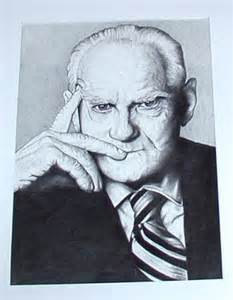 Alberto Moravia stressed that the writer is obliged to be extreme. No great writer, he says, was not extreme. That is, sincere. Can one think that Baudelaire and Rimbaud, Dostoevsky and Tolstoy, Nietzsche and Ibsen, were not extreme, that is, sincere, in the deepest sense of true to themselves? With sincerity in mind Gabriel García Márquez taught his students of journalism to cultivate bias. To risk. To be committed. Writers have to reject measure, that beloved rule of creative writing classes, as they are obligated to reject social conformity and political correctness.
Alberto Moravia stressed that the writer is obliged to be extreme. No great writer, he says, was not extreme. That is, sincere. Can one think that Baudelaire and Rimbaud, Dostoevsky and Tolstoy, Nietzsche and Ibsen, were not extreme, that is, sincere, in the deepest sense of true to themselves? With sincerity in mind Gabriel García Márquez taught his students of journalism to cultivate bias. To risk. To be committed. Writers have to reject measure, that beloved rule of creative writing classes, as they are obligated to reject social conformity and political correctness.
Asked what the writer is to do, Albert Camus, in The Myth of Sisyphus written in 1940 amidst the great European disaster, suggests: “The tyrannies of today are improved; they no longer admit of silence or neutrality. One has to take a stand, to be either for or against. Well, in that case, I am against.” For the committed writer, that still stands today.
Here, I will add two more words about committed literature, which is often accused of being political writing. Honest committed writers reply that moral conflicts of the day have a political background and that nearly every aspect of our lives is related to politics. An understanding of politics is fundamental in order to understand what the writer must oppose and what he can defend.
Understanding politics does not necessarily mean participation in politics; literary writers are not much good at it anyway. Chekhov advised writers to “engage in politics only enough to protect themselves from politics…. A bit of ideology and being up to date is most apropos.”
The enormity of universal problems today has overwhelmed the objection that modern society has made the concept of literary commitment obsolete. On the contrary, it seems. Not only social problems like alienation but also questions of truth and freedom, war and peace, market economy and poverty, the environment and scientific advances, underline the heightened need for socially aware, committed literature. Committed writers believe that human freedom itself is a social conquest and must be constantly reclaimed. For as Marx intimated it will always be true that man is NOT a machine, (which is related to money and capitalism and thus to inauthenticity).
In any case, I believe that good writers are aware of the danger of forgetting literature in the name of commitment. Unlike writers of compromise, they succeed in overcoming the threat through their ethical-aesthetical approach to their work: all in all, after everything is considered, they do not believe that anything can replace good literature. As Walter Benjamin wrote in his Illuminations: The authenticity of a thing is the essence of all that is transmissible from its beginning, ranging from its substantive duration to its testimony to the history which it has experienced. I believe he means the truth.

